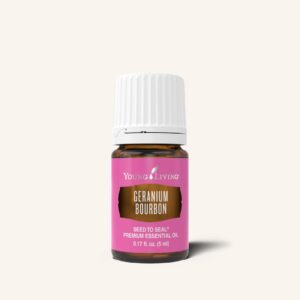Cassia. Cinnamomum cassia.
Chinese cinnamon.
Botanical family: Laurel.
Country: China.
Active ingredients:
Trans-cinnamic aldehyde (70-88%)
Trans-O-methoxycinnamic aldehyde (3-15%)
Coumarin (1.54%)
Cinnamyl acetate (0-6%)
Production method: steam distillation from branches, leaves and petioles.
Historical information:
Cassia essential oil belongs to the same family as cinnamon and is therefore a “hot” oil. Therefore, it is usually used in mixtures rather than on its own. Although I love its flavor and often use it instead of cinnamon!
Historically, this oil has been used as a natural remedy to support a healthy immune system as well as to create a sense of peace of mind.
Cassia comes from the Hebrew “quddah” meaning “amber” or “quetsioth” meaning “bark like cinnamon”. The Greek “casia” means “trees like acacias”.
Did you know that cassia was in the recipe for holy anointing oil given to Moses? Yes, the mixture included myrrh, cassia, cinnamon, calamus and olive oil!
Cassia was recorded in one of the oldest known books, the Ebers Papyrus, containing 877 recipes.
Cassia is directly mentioned three times in the Bible. And more than 65 times it is mentioned indirectly. Cassia was an important oil in ancient times.
Medicinal properties: May support the body’s natural defense system, anti-inflammatory (COX-2 inhibitor), antifungal, antibacterial, antiviral, anticoagulant.
What diseases to use: Cataract, fungal infections (ringworm, candida), atherosclerosis, anxiolytic (anxiety), diabetes mellitus.
Spiritual and emotional impact:
Although cassia oil is considered a hotter oil than cinnamon oil, I find the energy vibrations of this oil to be milder. I would categorize cinnamon as an oil that seems to be “carrying” on an energetic level, while cassia takes a more calm and gentle approach.
Cassia essential oil helps release the energy of worthlessness, unimportance and oppression that separates us from our higher self and our divine source. I understand that is why it was used in the Holy Anointing Oil given to Moses.
This oil helps us understand that each of us is free and plays an important role in our own and spiritual journey. But we must realize this ourselves. Only our “I” suppresses our connection with God and our spiritual freedom.
Influence on the mind: Warm and spicy aroma soothes and relaxes, but in difficult moments will give strength and confidence.
Chakras: sacral (2) and heart (4).
Colour: orange and yellow.
Application and dosage:
dilute 20:80 with vegetable oil or V-6 oil
apply 1-3 drops to the affected area
for oral administration, place in a capsule if needed
apply to Vita Flex points
in the Raindrop Technique massage – layer-by-layer application of oils
inhale from the palms of your hands or from a bottle
apply to chakras
use during meditation
5-8 drops in a diffuser, 30 minutes 3 times a day, or as needed
in the bath 5-6 drops per emulsifier
enrichment of cosmetics: 2 drops per 10 ml base.
Pet use: Yes, but to be honest it’s such a hot oil, I would use Exodus II blend, or other milder oils with similar properties.
Some oils can be very toxic to cats. These include non-therapeutic grade citrus oils! Please contact your veterinarian if you are not sure if an essential oil is suitable for your pet.
Precautionary measures:
use only therapeutic grade oils
dilute 1:1 with vegetable oil or V-6 oil
the oil is considered safe (GRAS) for internal use by the FDA
children under 6 years of age should not use the oil as a dietary supplement
photosensitivity possible
do not apply to exposed areas of the body 24 hours before sun exposure
when applied to the skin in its pure form, a slight burning sensation for 1-3 minutes, the reaction is natural
Keep out of the reach of children
shelf life of sealed packaging is not limited
Essential oils are not medicinal products. Specialist consultation required.





Reviews
There are no reviews yet.